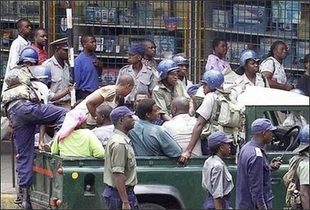PLRI is a collaboration of researchers, policy analysts and sex workers that aims to develop and consolidate ethical, interdisciplinary scholarship on sex work to improve the human rights, health and well being of women, men and transgenders who sell sex.
Article in Interface: a journal for and about social movements, Volume 3(2): 271 – 287 (November 2011).
Despite the massive achievements of the Prostitutes Collective of Victoria and the historic significance of this important organisation, sex workers as a community and the funds we had attracted drew an unhealthy level of interest from the health and community sector, stemming from a perception that sex workers were politically unable to run their own collective, and that the funds we had lobbied for could be better spent by people who were not sex workers.
The claim that the sex workers’ rights movement is a purely white, western phenomenon is one of abolitionism’s biggest falsehoods. In fact, Global South sex workers could teach their Northern counterparts a thing or two when it comes to organising for sex workers’ rights. Here is a videoclip of sex workers in Sonagachi, Calcutta, marching against criminalisation of their industry.

This report documents human rights violations experienced by female, male and transgender sex workers in four African countries (Kenya, Uganda, South Africa and Zimbabwe), and describes barriers they face to accessing health services. Through cross-country comparison and documenting sub-regional trends, the study moves beyond previous often-localised descriptions of violations against sex workers in Africa. The study also fills information gaps about violations in male and transgender sex workers in this setting.
Wagadu, an open access online feminist journal, has released a special issue ‘Demystifying sex work and sex workers.’ With articles from activist scholars the special issue, focuses on the everyday lives of sex workers.
Susan Dewey of the University of Wyoming who edited the issue explains, “While recent years have witnessed a dramatic outpouring of feminist scholarship that situates sex work within its broader socioeconomic and political contexts cross-culturally, there remains a tendency for academic scholarship to unconsciously reinforce the social stigmatization of sex workers by depicting them solely through their income-earning activities. This burgeoning research has convincingly demonstrated that sex work is embedded in a complex social matrix that often centers upon sex workers’ perceptions of their individual choices and responsibilities…Public policy on sex work is often shown to be seriously lacking when contextualized within the broader realities of many sex workers’ everyday life experiences throughout the world. As such, contributors to this special issue offer sound ethnographic evidence that clearly demonstrates the global need for policy and legal reform with respect to sex work.”
![]()
Paulo Longo was a Brazilian psychologist, gay rights activist and sex worker. In 1990 Paulo established Programma Pegacao to provide services to male sex workers in Rio de Janeiro and advocate on issues that affect them. In 1992 he co-founded the International Network of Sex Work Projects which he later led for three years.
Sex work is an important feature of the transmission dynamics of HIV within early, advanced and regressing epidemics in sub-Saharan Africa.
HIV prevalence among sex workers and their clients is commonly 20 fold higher than the gen
Sheila Farmer, a sex worker who worked with other women from premises for safety had charges of brothel-keeping dismissed today in Croydon Crown Court. She worked with other women since being viciously raped and attacked whilst working alone. Ms Farmer left court with over 20 supporters delighted and relieved that she no longer faces a criminal conviction and possible prison sentence. Ms Farmer suffers from severe diabetes and a malignant brain tumour. Her doctor had provided evidence that an onerous and stressful trial would have exacerbated her condition.
Passed to protect women, the 2008 law on human trafficking and sexual exploitation has been used by authorities to justify the harassment and abuse of sex workers.
But, Cambodian sex workers say it’s now time to demand their rights.Hundreds are gathered in the capital of Phnom Penh.They are clapping loudly as the host welcomes the first day of 16 days of activism against gender violence.They are wearing white shirts with the slogan: “United we can end violence against women and bring the peace.”

